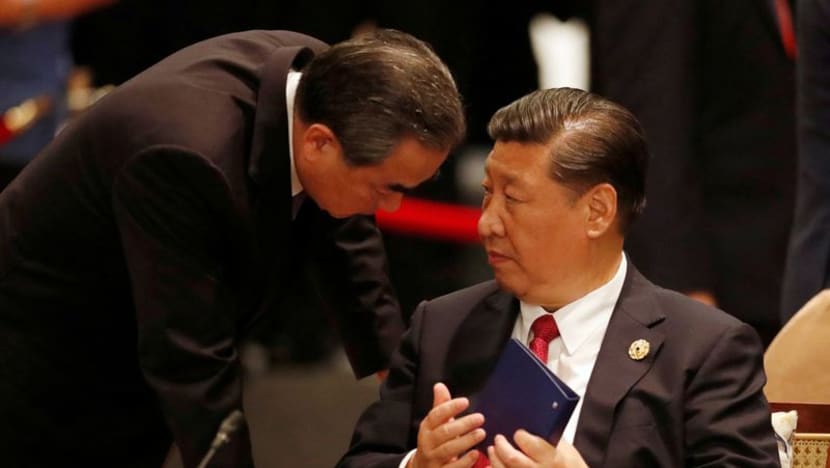World
Chinese President Xi Jinping Expected to Miss ASEAN Summit

Chinese President Xi Jinping is expected to skip the upcoming Association of Southeast Asian Nations (ASEAN) leaders’ summit scheduled for October 26-28, 2023, according to two individuals familiar with the situation. This decision diminishes the possibility of a highly anticipated meeting between Xi and US President Donald Trump during the event in Kuala Lumpur.
Earlier this month, Malaysian Prime Minister Anwar Ibrahim indicated that both leaders were expected to attend the summit, raising hopes for a potential in-person encounter amid their ongoing trade discussions. However, regional sources now suggest that Chinese Premier Li Qiang will represent China at the summit instead.
The office of Anwar, who currently chairs the 10-member bloc, referred inquiries to Malaysia’s foreign ministry. The ministry, however, has not yet commented on Xi’s attendance. Similarly, China’s Ministry of Foreign Affairs has not responded to requests for clarification from Reuters.
Anwar informed the Malaysian parliament last month that Trump had confirmed his attendance during a phone call with the US leader. Trump stated earlier this month that he would meet Xi before the end of the year, contingent upon reaching a trade agreement. He claimed, “we’re getting very close to a deal.”
Discussions among aides for both presidents have included a potential autumn meeting in Asia, timed with the Asia-Pacific Economic Cooperation (APEC) summit in South Korea from October 30 to November 1, 2023. The ASEAN summit would mark Trump’s first visit to Southeast Asia since his 2019 meeting with North Korean leader Kim Jong Un in Hanoi, Vietnam. Trump is also expected to attend the APEC summit.
Historically, attendance by Chinese presidents at ASEAN summits is infrequent. Since taking office in 2012, Xi has only participated in a special ASEAN summit virtually in 2021. Similarly, US presidents have rarely attended these events; Trump was present in 2017, while President Joe Biden participated remotely in 2021 and attended in person in Cambodia the following year.
The upcoming annual summit aims to be “ASEAN’s largest and most high-profile gathering of world leaders to date,” as stated by Anwar. Other notable attendees include Brazilian President Luiz Inacio Lula da Silva and South African President Cyril Ramaphosa.
Last week, Washington and Beijing agreed to extend a tariff truce for an additional 90 days, temporarily averting the imposition of triple-digit duties on each other’s goods. This extension allows negotiations to continue on various issues, including trade imbalances, market access, and rare earth materials.
Trump’s tariff policies have significantly impacted Southeast Asia, a region heavily reliant on exports and manufacturing. Earlier this month, the White House announced tariffs averaging about 19 percent on exports from major Southeast Asian economies, a notable reduction from prior threats. The US administration had cautioned regional countries against facilitating the transshipment of Chinese goods to the US market.
As the ASEAN summit approaches, the geopolitical dynamics of the region remain under close observation, particularly regarding US-China relations and their implications for Southeast Asia’s economic landscape.
-

 Business5 months ago
Business5 months agoKenvue Dismisses CEO Thibaut Mongon as Strategic Review Advances
-

 Lifestyle4 months ago
Lifestyle4 months agoHumanism Camp Engages 250 Youths in Summer Fest 2025
-

 Sports4 months ago
Sports4 months agoDe Minaur Triumphs at Washington Open After Thrilling Comeback
-

 Sports5 months ago
Sports5 months agoTupou and Daugunu Join First Nations Squad for Lions Clash
-

 Top Stories5 months ago
Top Stories5 months agoColombian Senator Miguel Uribe Shows Signs of Recovery After Attack
-

 World5 months ago
World5 months agoASEAN Gears Up for Historic Joint Meeting of Foreign and Economic Ministers
-

 Health4 months ago
Health4 months agoNew Study Challenges Assumptions About Aging and Inflammation
-

 Business5 months ago
Business5 months agoOil Prices Surge Following New EU Sanctions on Russia
-

 Entertainment4 months ago
Entertainment4 months agoDetaşe-Sabah Violin Ensemble Captivates at Gabala Music Festival
-

 Entertainment4 months ago
Entertainment4 months agoBaku Metro Extends Hours for Justin Timberlake Concert
-

 Top Stories5 months ago
Top Stories5 months agoRethinking Singapore’s F&B Regulations Amid Business Closures
-

 Business5 months ago
Business5 months agoU.S. House Approves Stablecoin Bill, Sends to Trump for Signature









